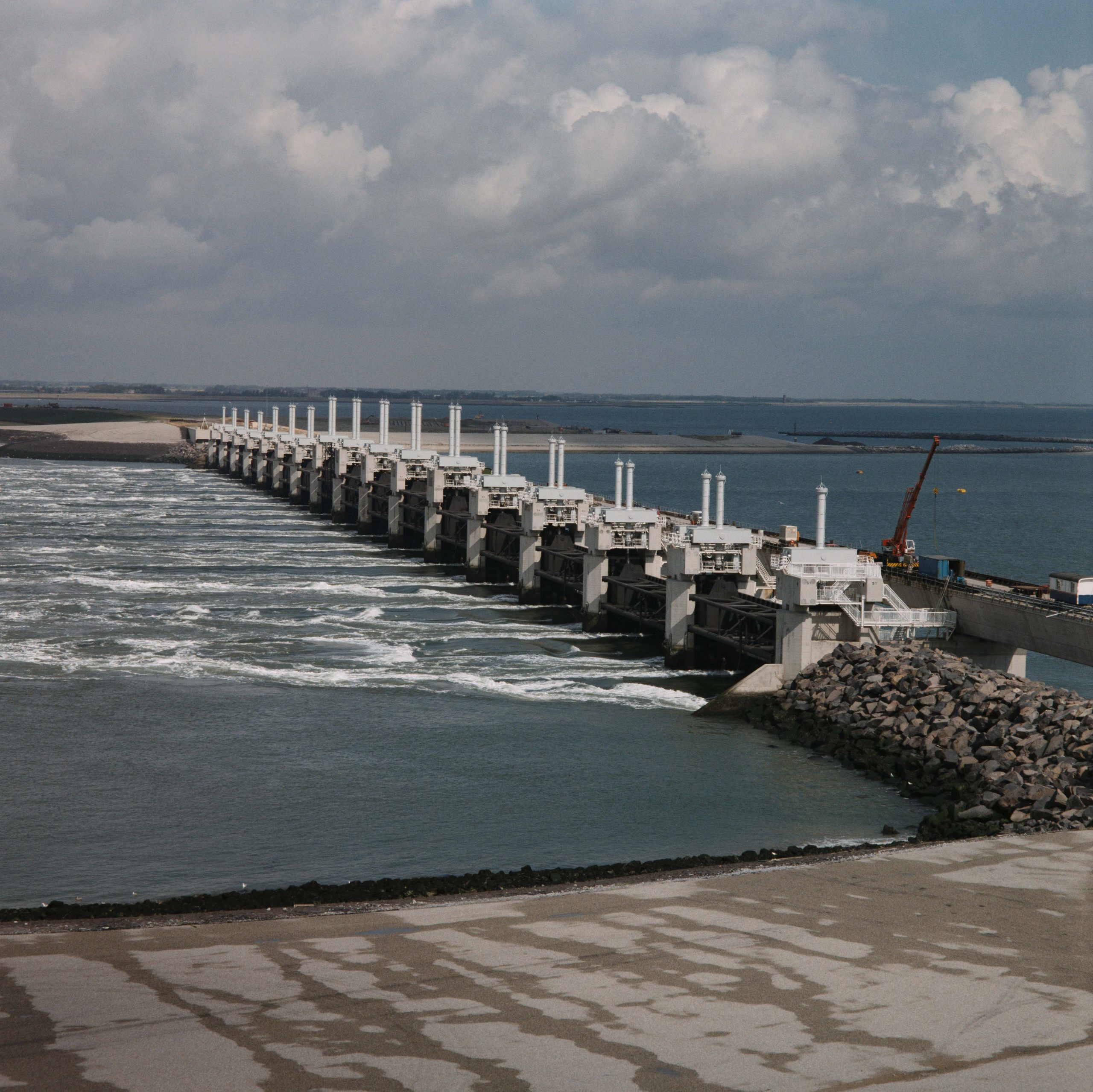The flood disaster 70 years ago was the starting point for the Delta Works. For decades, it was the Netherlands’ pride in hydraulic engineering. How do we look at it now?
When it opened in 1986, the closable Eastern Scheldt storm surge barrier was a unique combination of safety and nature conservation. (Photo: © Rijkswaterstaat | Department of Multimedia Rijkswaterstaat)
Professor Bas Jonkman of Hydraulic Engineering (Faculty of Civil Engineering and Geosciences) is currently doing research around a new Delta Works plan at A&M University in Texas. Delta spoke to him in connection with the commemoration of the floods in the South West of the Netherlands on 1 February 1953.
In the 1970s and 1980s, the Delta Works was the national pride. Is that still the case?
“That depends on who you ask. Many people are still proud of it, especially civil engineers and hydraulic engineers,” says Jonkman. “However, more attention has been paid to the effects of its projects on nature. There are now mitigation projects such as a culvert in the Brouwers Dam and a fish and eel passage in the Afsluitdijk. These are not part of the Delta Works but have come from more attention being paid to ecology.”
We have long felt untouchable behind the Delta Works, but in the face of sea level rise, that sense of security is waning.
“Yes, that perception is waning. Of course it is good to look ahead to a possible sea level rise, but it is not that we are suddenly in danger now. I also think that a very pessimistic picture is sometimes painted. As if we would perish because of sea level rise. We are far from that as yet. I often illustrate this with an example. The dykes in Zeeland have been raised by five metres since the 1953 flood. Then we would suddenly not be able to handle one or two metres of sea level rise a few centuries ahead?”
How do you view sea level rise?
“It’s good to start working out step by step what a one or two metre sea level rise implies for the Delta Works and what we need to do to adapt. Exploratory studies show that the existing situation can be well adapted and scaled up, for example by sand replenishment along the coast. Funnily enough, the first bottlenecks where we really need to do something different are the Delta Works. In particular, the Eastern Scheldt barrier and the Maeslandt barrier. There is no immediate problem there either, and we will learn more in the coming decades. We are already coming up with alternative plans such as Ties Rijcken’s Holland barrier, a futuristic arch with a platform on top, off Hoek van Holland. We need to develop more similar ideas. The pessimism behind thoughts like ‘oh dear, we’re going down’ and ‘we can’t do it anymore’ is beyond my comprehension. Pessimism is also not a good export product either, by the way.”
Do you have a question or comment about this article?
j.w.wassink@tudelft.nl


Comments are closed.